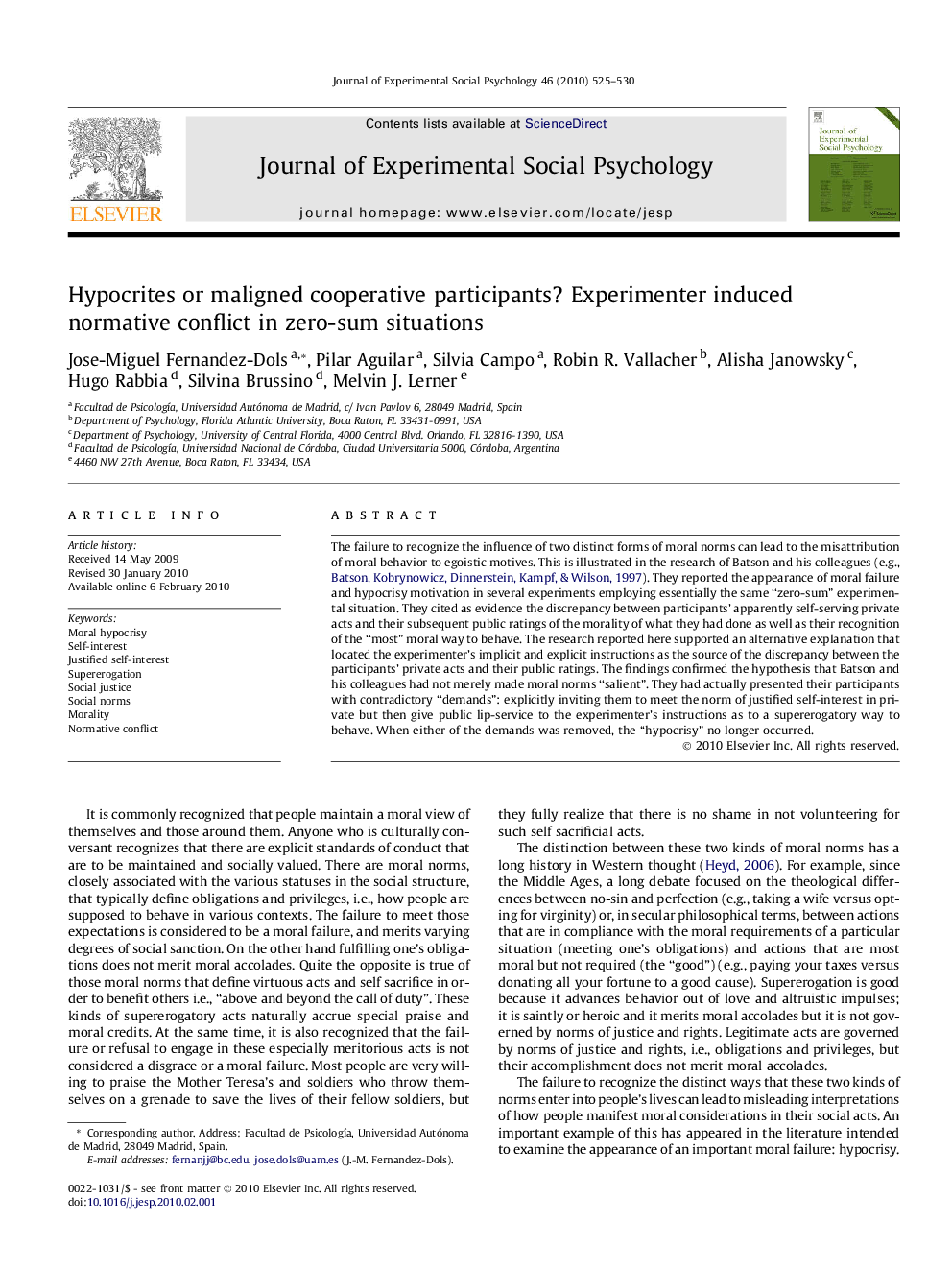| Article ID | Journal | Published Year | Pages | File Type |
|---|---|---|---|---|
| 948675 | Journal of Experimental Social Psychology | 2010 | 6 Pages |
The failure to recognize the influence of two distinct forms of moral norms can lead to the misattribution of moral behavior to egoistic motives. This is illustrated in the research of Batson and his colleagues (e.g., Batson, Kobrynowicz, Dinnerstein, Kampf, & Wilson, 1997). They reported the appearance of moral failure and hypocrisy motivation in several experiments employing essentially the same “zero-sum” experimental situation. They cited as evidence the discrepancy between participants’ apparently self-serving private acts and their subsequent public ratings of the morality of what they had done as well as their recognition of the “most” moral way to behave. The research reported here supported an alternative explanation that located the experimenter’s implicit and explicit instructions as the source of the discrepancy between the participants’ private acts and their public ratings. The findings confirmed the hypothesis that Batson and his colleagues had not merely made moral norms “salient”. They had actually presented their participants with contradictory “demands”: explicitly inviting them to meet the norm of justified self-interest in private but then give public lip-service to the experimenter’s instructions as to a supererogatory way to behave. When either of the demands was removed, the “hypocrisy” no longer occurred.
